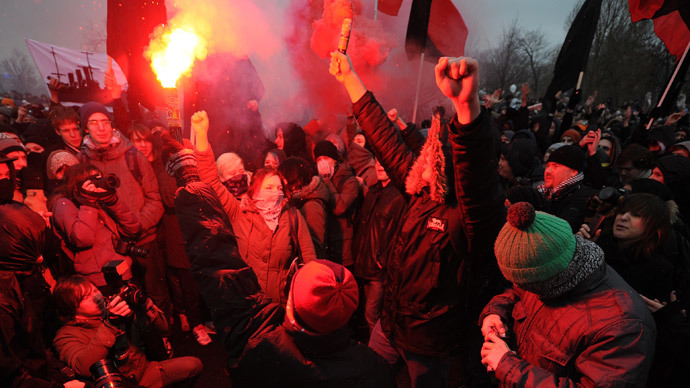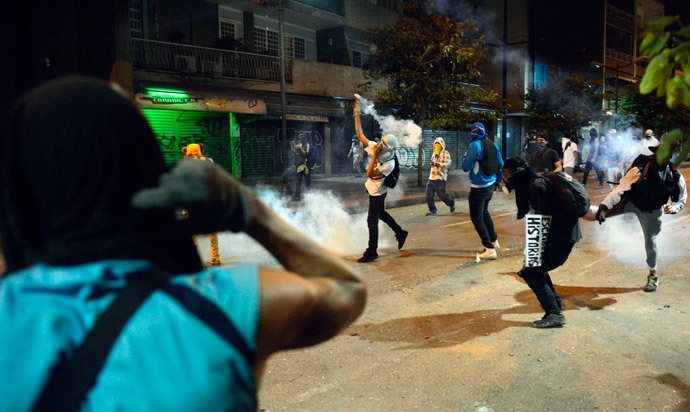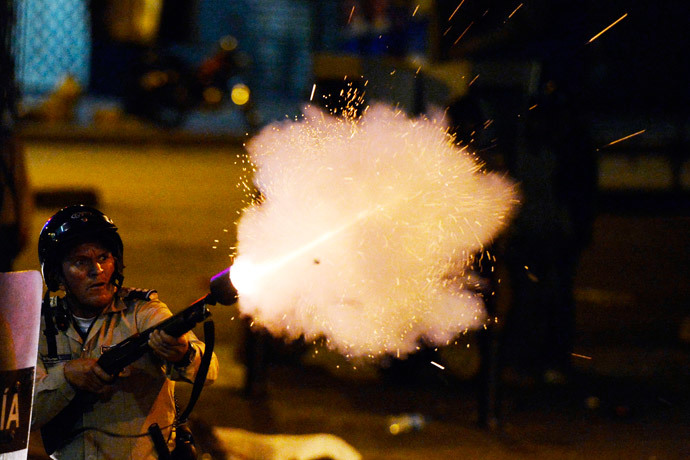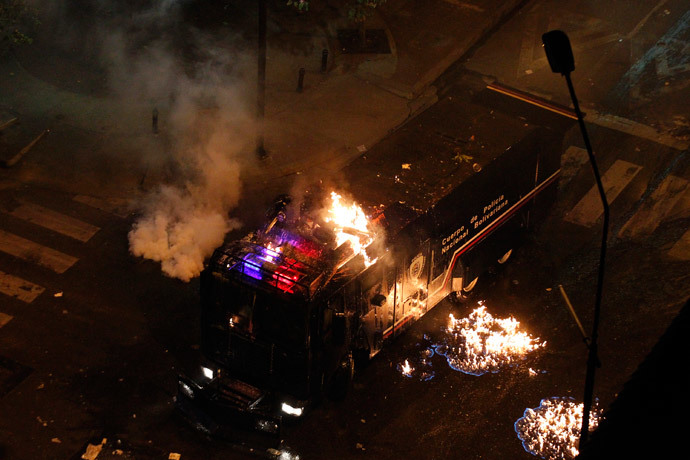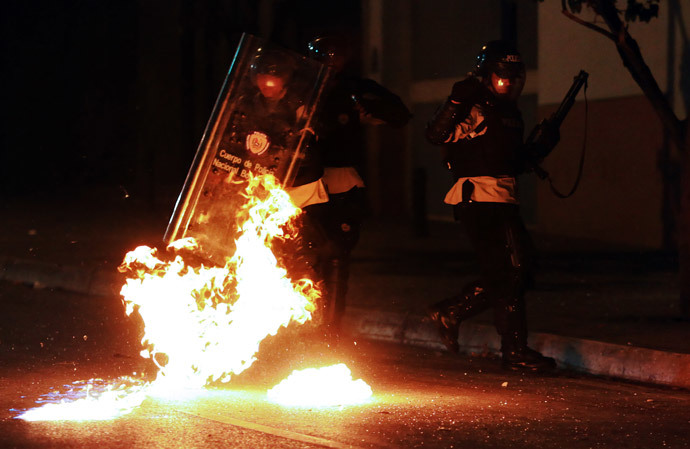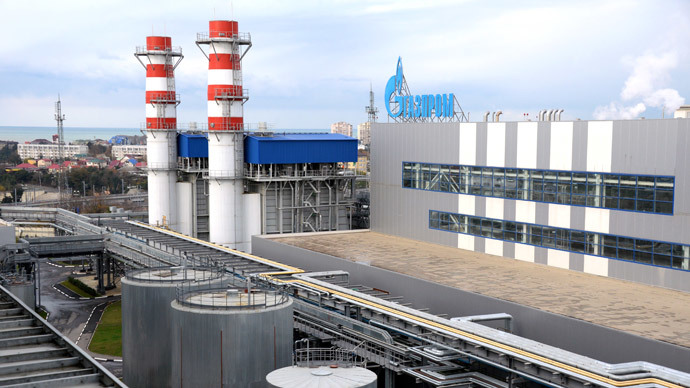A group of MPs are seeking to introduce additional punishment for repeated violation of the law on rallies, saying there is a need to protect citizens from ‘professional’ protesters. The amendments are being prepared by three State Duma deputies representing the conservative majority party United Russia and the center-left Fair Russia caucus. The lawmakers have presented statistics showing the majority of trouble makers at rallies are repeated violators. According to Interior Ministry data, of 36 people who were detained for illegal protest in the Moscow city center on February 6 this year, 21 had been previously been found guilty of administrative offense. Two of these people had each violated the law on rallies 16 times. A similar situation occurred on February 24 - of the 49 detained for illegal protest, three had a record of over 10 convictions for the same offense. “There is such a term as abuse of right and we face this phenomenon at mass events,” one of the bill’s sponsors told the mass circulation daily Izvestia. “Multiple violations of the law over a short period of time demonstrates that the offender is not afraid of the current punishment. This is why we decided to tighten the responsibility for repeated violations of mass events rules,” the MP added. The suggested amendments provide that those who violate the law on rallies more than twice during a period of six months must face criminal justice instead of administrative one. The suggested punishment ranges from fines of between 600,000 and 1 million rubles ($16600 - $27700) or up to five years behind bars. The punishment for organisers of mass events who refuse to comply with law enforcers’ lawful demands is increased to 30 days of administrative arrest. The MPs suggest introducing separate articles to the administrative code for disrupting transport and social infrastructure and for blocking public access to these facilities. Violating public order in areas adjacent to dangerous industrial and transport sites, courts and prisons and residences of leading officials could also become an offence punishable with up to 20 days of administrative arrest. The draft also aims to bring rally rules in line with modern realities – it forbids bringing poisonous, flammable and explosive objects to rallies (as well as means of making such objects) – an obvious lesson from the recent tire fires and firecracker attacks in the Ukrainian capital Kiev. The planned amendments also demand that reporters who cover mass events wear distinctly visible marks of their profession. According to the authors, this is caused by frequent incidents in which reporters provoked the police to detain them and only after detention presented their press cards. The initiative caused mixed reaction in parliament. The heads of the Communist Party of Russia Gennady Zyuganov and the leader of the Fair Russia party Sergey Mironov called the suggested measures excessive, and said that tightening the punishment was not good for dialogue between the authorities and opposition. The head of the Lower House committee for security, MP Irina Yarovaya (United Russia), said that the suggested procedures and measures were absolutely lawful and transparent and that the sanctions provided by the bill were “more than humane”. A member of the State Duma Committee for Civil and Criminal Law, MP Raphael Mardanshin (United Russia) commented that tougher punishment for repeated violators existed in other spheres of the law and it was only just to apply this rule to troublemakers and radicals who disrupt peaceful protests.
